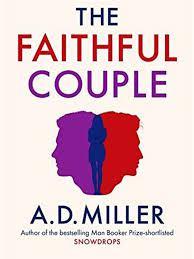 One of the bits I really like in the film of Bridget Jones’ Diary is the fight scene between Colin Firth and Hugh Grant. What makes me laugh every time is how real they manage to make it look – all clumsy grappling and uncoordinated lashing out, the impetus to hurt the other person kept in check by the much stronger desire not to be hurt oneself. They are two boys having a scrap in the playground, not Hollywood actors in a polished and well-choreographed routine and it’s very endearing.
One of the bits I really like in the film of Bridget Jones’ Diary is the fight scene between Colin Firth and Hugh Grant. What makes me laugh every time is how real they manage to make it look – all clumsy grappling and uncoordinated lashing out, the impetus to hurt the other person kept in check by the much stronger desire not to be hurt oneself. They are two boys having a scrap in the playground, not Hollywood actors in a polished and well-choreographed routine and it’s very endearing.
It was the same sense of scrappy realness, a bit clumsy, a bit awkward, often mortified, that kept me engaged and enjoying The Faithful Couple, A. D. Miller’s bromance about long-term friendship between men. Adam Tayler and Neil Collins meet in California while travelling, Adam as part of a gap-year after his degree at Durham, Neil as a treat after he jacks in a pharmaceutical sales job. There’s a distinct, nuanced difference in class. Neil, though he also has a degree, will be trapped on his return into working at his widowed father’s dreary stationary shop in a dull, grubby part of London. His mother died when he was 14, and his older brother has gone off the rails. Adam comes from an entitled family, a jolly, confident bunch, his father in shipping insurance, his mother helping charities. Adam has the money behind him to be idealistic, and is intending to work in television.
But first: California. The young men fall into an easy, feckless friendship, their comfort with one another spiked at the edges by an undercurrent of rivalry. Travelling up the West coast of America, they urge each other on to bad behaviour, running out of a bar without paying. It’s nothing really, they are good boys at heart. But on a camping trip in Yosemite, the competitiveness gets a little out of hand over a young woman named Rose. Adam is aware of her age, and does not pass this information on to Neil. There is an ugly incident, but one that eventually passes over without any dire consequence. Back in England, Adam and Neil cement their friendship, the secret sin that lurks between them exerts a uniting effect, not least in their desire to cover it over.
But as the years slip by and things do not fall out as expected – Adam’s career repeatedly stagnates, his ambition lost to the daily grind of family life, whilst Neil moves from dotcom to property to financial management, making money all the way – the California incident begins to fester. It’s Adam who lets himself become needled with guilt. Partly the birth of his daughter affects him with superstitious karmic fear, but there’s also an unarticulated disappointment to deal with, that on paper, Neil is doing better than he is. In the unwritten laws of his upbringing, Adam realises that this inability to let an old, half-forgotten incident go is as verboten as any other form of weakness:
To moon over a girl was gay. To worry over exams was nerdy. Everyone was supposed permanently to be on good form, as if they were well-conditioned, moodless racehorses… They were all or nothing people, Adam realised, his family, his breed. Their only game plan was to get all the way through, right to the end, thinking as little as possible, in the hope that they could outrun it – whatever it was that they were frantically eschewing, the neglect or abuse or adultery.’
Adam can’t quite leave it alone; he has to use the incident in California as a stick to beat himself with, except of course he keeps missing and hitting Neil instead. The underlying preoccupation of the story is whether the men will allow it to destroy their friendship – something we come to understand is meaningful and important to them – or if they’ll find a way to neutralise their growing resentment.
This is a thoughtful, touching novel that feels unusual in its male-driven perspective. The question of whether men can still love one another as friends in a typical new millenium middle-class life that is far too bothered about money and success and advancement is not one that often gets asked – or at least, not one that gets asked to the exclusion of all else. The prose is supple and clever, though occasionally Miller does ask it to do too much, to fit in too many thoughts – there are sentences that require the reader to put on her wader’s wellies to get across. And I fear women might not care much for the way women are seen through the eyes of the main protagonists. There’s nothing sexist here. It’s just that women aren’t seen very much; the male gaze still tracks other, more self-regarding prizes than the happiness of those who love them. But I fear that may just be realistic. Other than that, Miller is particularly good on class, and on the changing face of life in London, and on bringing up children, and on the relentless, indefatigable competition between men and just about everyone and everything else. It’s that detailed attention to authenticity that makes this novel a pleasure to read.
